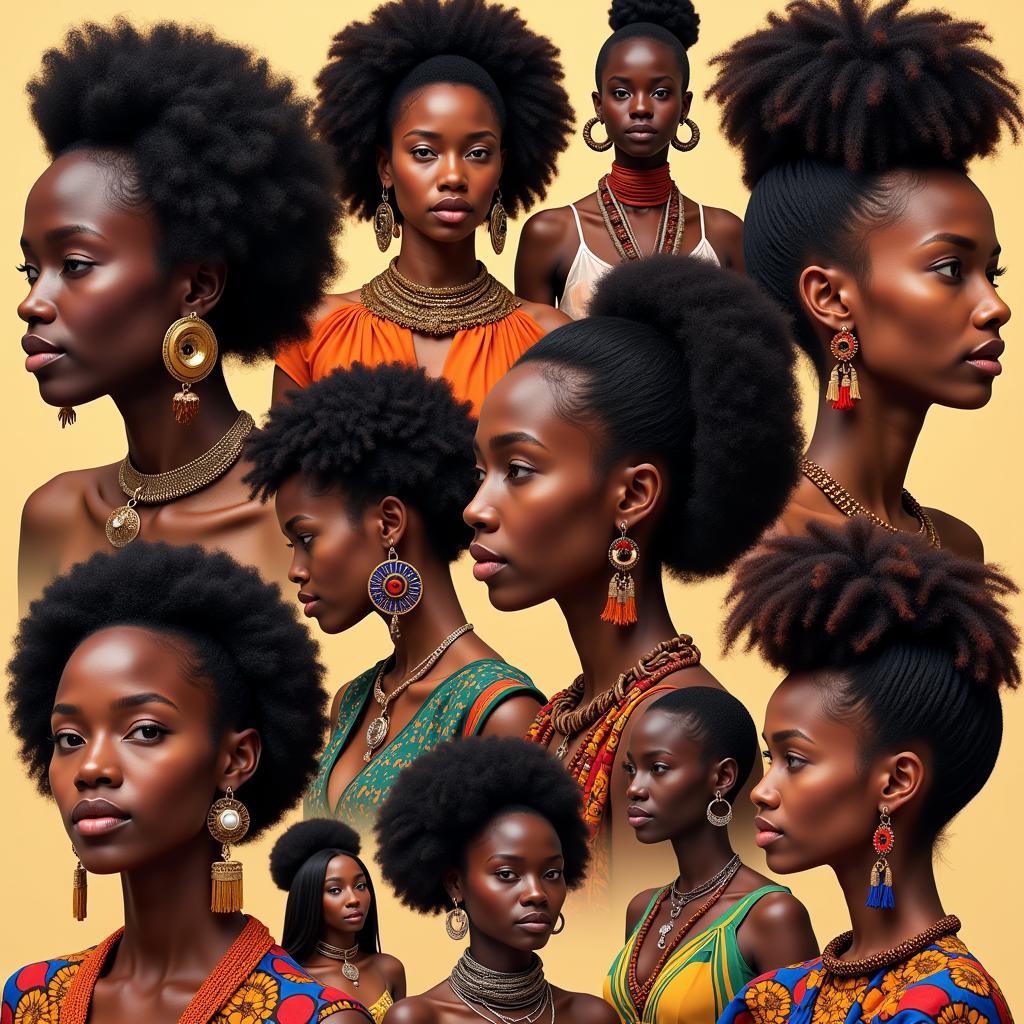Exploring the World of African Drama
African Drama is a vibrant and diverse art form that reflects the continent’s rich history, cultural traditions, and social realities. From traditional storytelling and ritual performances to contemporary plays and experimental theatre, African drama offers a captivating lens through which to understand the complexities and nuances of African Life.
The Roots of African Drama: A Rich Tapestry of Tradition
African drama has its roots deeply embedded in oral traditions, rituals, and ceremonies that have been passed down through generations. These performances often served a multifaceted purpose, combining entertainment with social commentary, moral instruction, and spiritual expression.
One prominent example is the Yoruba Alarinjo tradition of Nigeria, where masked actors, accompanied by musicians and dancers, enact stories from Yoruba mythology and history. Similarly, the Igbo masquerades of southeastern Nigeria feature elaborate masks and costumes, embodying spirits and ancestors who interact with the living, offering guidance or warnings.
From Colonization to Independence: A Powerful Tool for Social Commentary
The arrival of colonialism in Africa brought new influences and challenges to traditional forms of drama. Playwrights began to use theatre as a platform to critique colonial oppression, explore themes of identity, and advocate for independence.
One of the most influential figures of this era is Wole Soyinka, a Nigerian playwright, poet, and activist who won the Nobel Prize in Literature in 1986. Soyinka’s plays, such as “Death and the King’s Horseman” and “The Lion and the Jewel,” skillfully blend Yoruba mythology with contemporary issues, challenging audiences to confront social injustices and the clash between tradition and modernity.
Another significant figure is Ngũgĩ wa Thiong’o, a Kenyan writer and scholar known for his plays, novels, and essays. Ngũgĩ’s work often explores the impact of colonialism on African societies, urging audiences to reclaim their cultural heritage and challenge neocolonial structures.
Contemporary African Drama: Diverse Voices, Global Stages
Contemporary African drama continues to evolve, embracing new forms of expression and engaging with a wide range of themes. Playwrights across the continent are exploring issues such as globalization, HIV/AIDS, gender equality, political corruption, and the legacy of conflict.
The emergence of female playwrights has brought fresh perspectives to African drama, challenging patriarchal norms and giving voice to women’s experiences. For instance, Ama Ata Aidoo from Ghana, known for her play “The Dilemma of a Ghost,” explores the complexities of cross-cultural marriage and the challenges faced by women in a rapidly changing society. Similarly, Zakes Mda from South Africa, through his play “When Rain Clouds Gather,” tackles themes of social change, political activism, and the resilience of the human spirit in the face of adversity.
African Drama: A Global Influence
African drama is increasingly gaining recognition on the global stage. Plays by African playwrights are being staged in major theaters worldwide, captivating audiences with their compelling stories, powerful messages, and innovative theatrical techniques. The rise of international collaborations and festivals dedicated to showcasing African theatre further amplifies these diverse voices.
Conclusion: The Enduring Power of Storytelling
African drama, with its rich tapestry of tradition, resilience in the face of adversity, and commitment to social commentary, continues to captivate and inspire audiences around the world. From the ancient rituals to the contemporary stage, African drama serves as a powerful reminder of the enduring power of storytelling to reflect, challenge, and transform societies.
